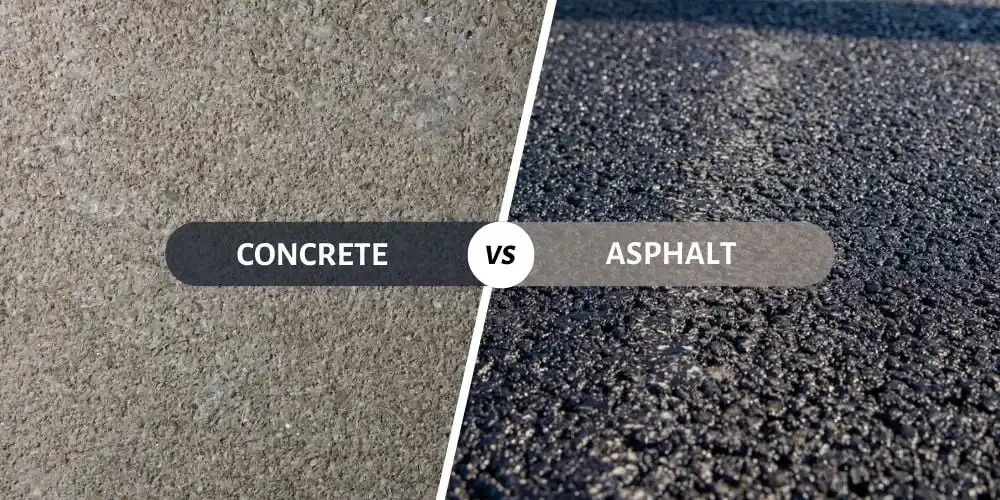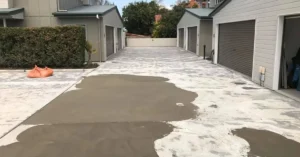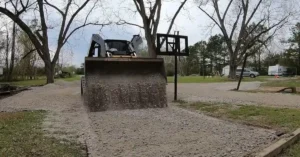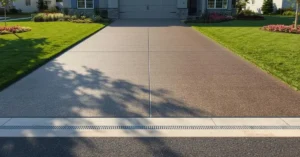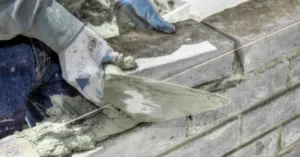Homeowners often face tough choices when planning a new driveway. Appearance, durability, and cost all matter in making a decision. Two common options are blacktop and concrete, both with unique qualities. Many people compare them before starting a big home improvement project. Understanding each material helps you choose the one that fits your lifestyle best. This guide looks at each option in detail to help you decide. Around the USA, driveways can impact home value and long-term maintenance. The debate about a blacktop or concrete driveway often starts with cost but ends with durability. Knowing the facts before investing ensures your money is well spent and wisely planned.
What is a Blacktop Driveway
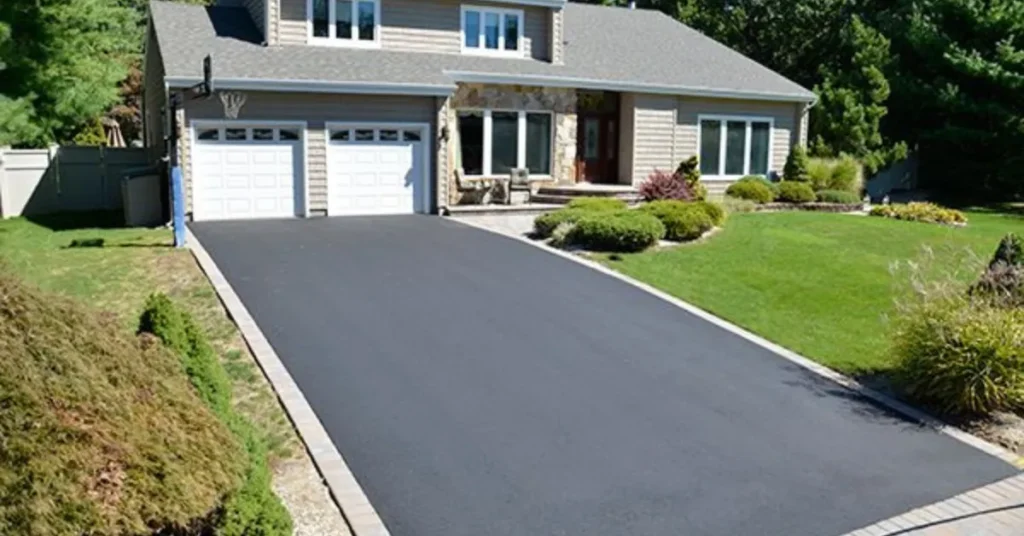
A blacktop driveway is made from asphalt mixed with crushed stone. It creates a dark, smooth surface that is flexible under heavy weight. Many people like blacktop for its lower cost compared to concrete. It can handle extreme cold without much cracking because it is softer. This material is usually installed quickly and ready for use sooner. Maintenance often includes sealing every few years to prevent damage. Blacktop surfaces may fade in color after long sun exposure in summer. They can become soft in high heat, making surface dents more likely. While it offers budget benefits, it requires more care over time than concrete.
What is a Concrete Driveway
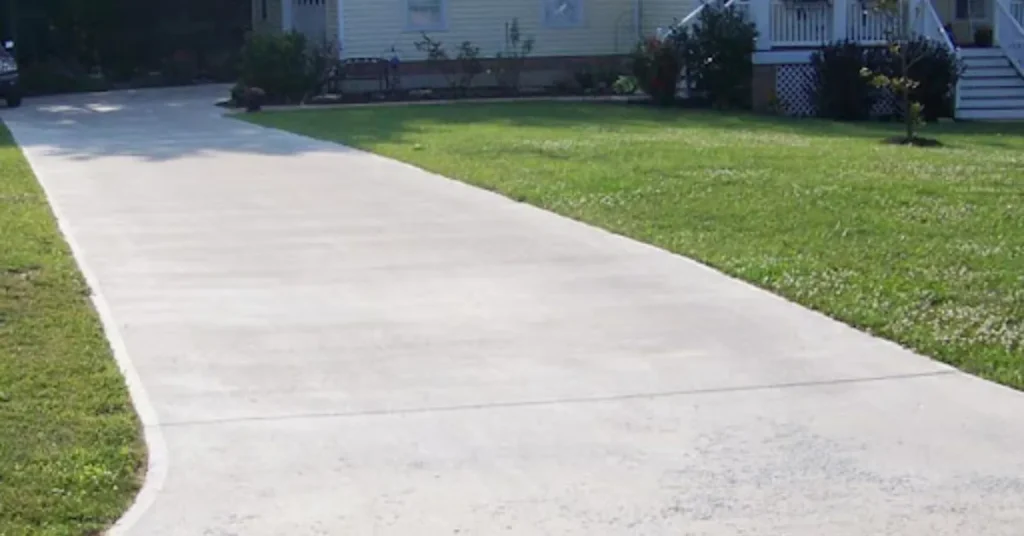
Concrete driveways use a mixture of cement sand gravel and water. This creates a hard, long-lasting surface that can last decades with care. Unlike blacktop, concrete stays cooler in hot months and resists softening. It can be styled with different finishes colors and stamped patterns. Homeowners enjoy its clean, bright appearance that matches many home designs. Maintenance is minimal, often just cleaning and sealing every few years. Concrete handles heavy loads without bending or losing shape over time. It resists most weather changes better than flexible blacktop surfaces. While the initial cost may be higher, long-term savings are clear. Concrete often outlasts blacktop by many years, making it cost-effective.
Comparing Durability and Lifespan
When looking at durability, concrete stands out for its long service life. A well-built concrete driveway can last thirty years or even more. Blacktop driveways usually last around twenty years before major repairs are needed. Harsh winters and hot summers both affect each material differently. Concrete is less likely to develop deep cracks under heavy vehicle weight. Blacktop can flex slightly in cold but wears down faster in heat. Concrete resists fuel spills and other stains better than blacktop surfaces. With proper sealing, concrete can maintain strength and appearance for decades. While blacktop costs less at first, its shorter lifespan raises long-term costs. Choosing concrete means fewer repairs and replacements over the years.
Maintenance Requirements
Maintenance is another big factor when choosing a driveway material. Blacktop needs sealing every two to three years to keep moisture out. Cracks in blacktop should be repaired quickly to avoid bigger problems. Concrete needs sealing less often, sometimes only every five years. Cleaning concrete is easy with water and mild detergent for most stains. Blacktop can be damaged by oil spills, which create soft, weak spots. Concrete can resist many chemicals and holds its shape after cleaning. Winter snow removal is easier on concrete, as it stays firmer. Blacktop can chip when using metal shovels or plows during icy weather. Less frequent upkeep with concrete means less ongoing expense and effort.
Appearance and Design Options
A driveway also affects the beauty of a home’s exterior. Blacktop has a uniform dark color but offers little design variety. Concrete can be poured in many shades and decorative patterns for style. Stamped concrete can mimic stone, tile, or brick for added charm. This flexibility makes concrete popular for matching many home types. Blacktop works best in simple modern or industrial-style settings. Concrete offers curb appeal that can raise property value over time. Homeowners who want unique textures often prefer concrete’s creative options. Blacktop fades to gray after years of sun, making it look older. Concrete can be refreshed with sealers or stains for a like-new look.
Cost and Value Over Time
Initial cost is where blacktop often appears to be the winner. It can be installed at a lower price than most concrete projects. However, the higher upkeep needs can add costs over the years. Concrete costs more upfront but requires fewer repairs and sealings. Over decades, concrete usually ends up being less expensive overall. Blacktop might need a full replacement sooner, increasing total spending. Concrete’s long life means you can enjoy your driveway for decades. The added home value from a beautiful concrete finish is another bonus. For homeowners thinking about long-term value, concrete stands as the smarter choice. In this way, cost and durability make concrete the winning investment.
FAQ
What is the difference between a blacktop and a concrete driveway?
Blacktop (asphalt) driveways are dark, flexible, and budget-friendly but require frequent sealing and maintenance. Concrete driveways are hard, durable, and long-lasting with low maintenance and more design options.Which driveway material lasts longer, blacktop or concrete?
Concrete driveways can last 30 years or more with proper care, whereas blacktop driveways typically last around 20 years before major repairs are needed.How much maintenance do blacktop and concrete driveways require?
Blacktop requires sealing every 2–3 years and prompt crack repairs, while concrete needs less frequent sealing (about every 5 years) and is easier to clean and maintain.Can I customize the appearance of my driveway?
Concrete offers a wide range of design options, including colored finishes, stamped patterns, and textures. Blacktop is mostly uniform in color with limited design flexibility.Which driveway material is more cost-effective in the long term?
While blacktop has a lower initial cost, its frequent maintenance and shorter lifespan can increase long-term expenses. Concrete has a higher upfront cost but usually ends up more cost-effective due to durability, minimal repairs, and added home value.
Final Recommendation for Homeowners
After comparing every factor, concrete offers the best value for most homes. Its durability, design flexibility, and low maintenance make it a top choice. While blacktop may suit short-term budgets, concrete wins for the long haul. The lifespan and curb appeal of concrete are worth the initial cost. Homeowners across the USA have seen higher property value from concrete drives. It also withstands varied climates with fewer issues than blacktop surfaces. If you are planning your next driveway, think about the years ahead. Choosing concrete will save money, time, and effort in the future. For expert installation and lasting results, contact Mouton Concrete Services today

